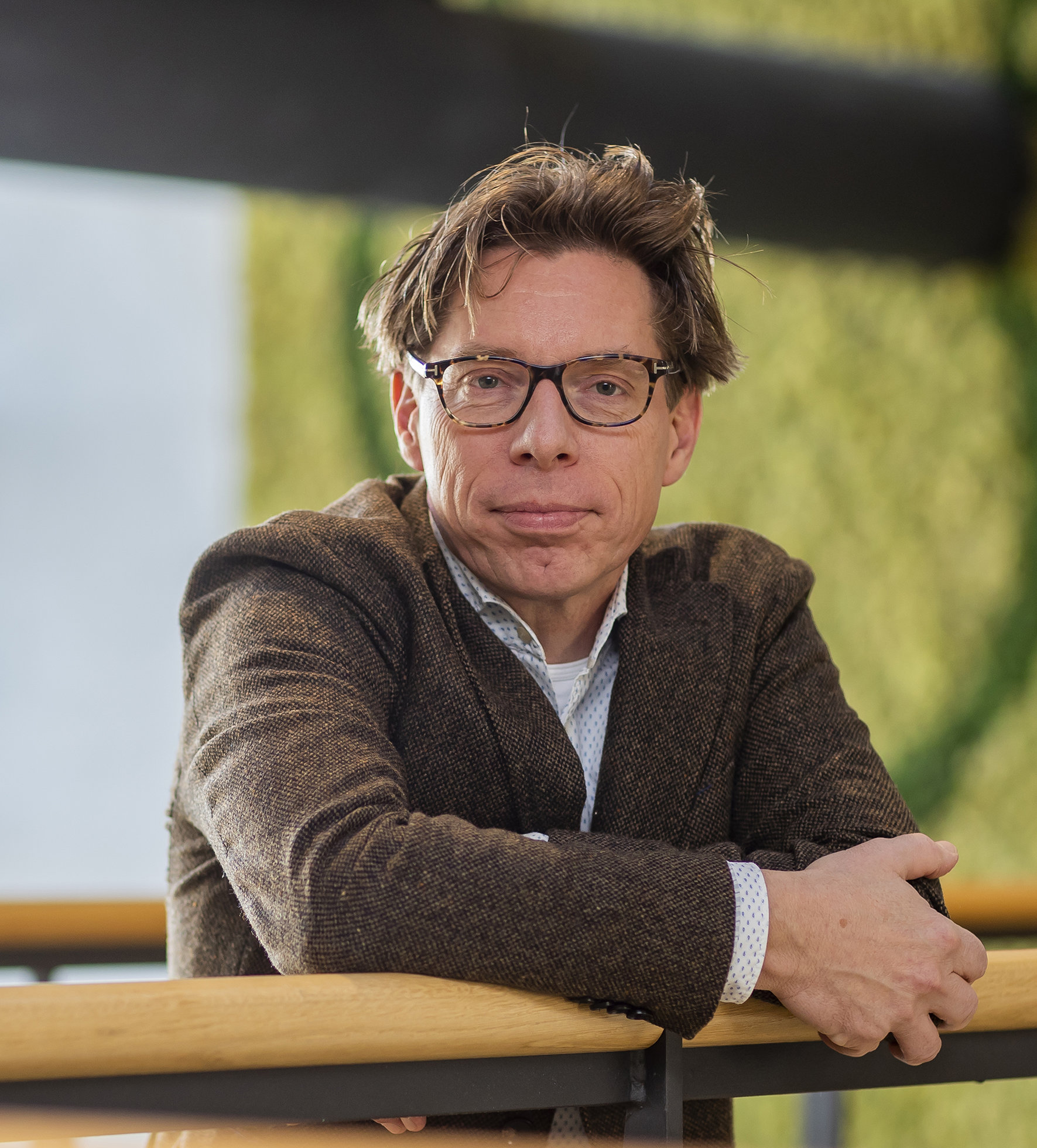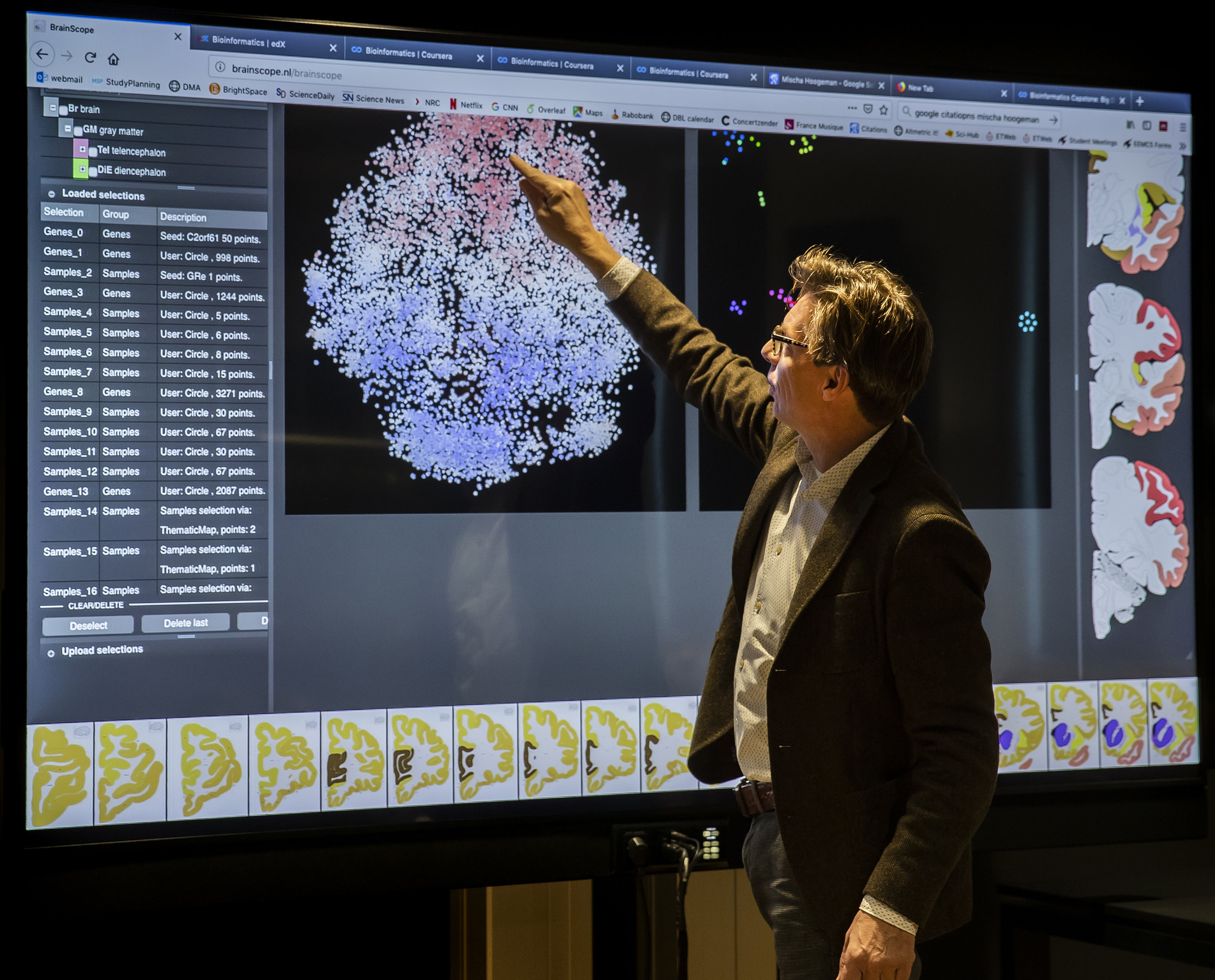Algorithms against Alzheimer's
As our average life expectancy rises, an increasing number of people are developing Alzheimer’s disease. In 20 years’ time, 500.000 people in the Netherlands are expected to be affected by this brain disease, which is still incurable. Reason enough to focus on research aimed at fathoming Alzheimer’s. TU Delft researchers are playing a leading role in this.
Professor Marcel Reinders’ research group at the Faculty of EEMCS is working closely with the Alzheimercentrum Amsterdam, Amsterdam UMC to get a grip on the disease. The emphasis in Amsterdam is on the biology, patient-related issues and data collection. The data is analysed in collaboration with TU Delft. This combined effort is designed to lead to a future breakthrough in the treatment of Alzheimer’s.
Age-related disease number one
Age is the most significant risk factor behind developing Alzheimer’s. The older you are, the more likely you will get the disease. Nearly a third of all people above the age of 85 suffer from a form of dementia, with Alzheimer’s disease being the most prevalent. The illness is caused by the accumulation of various proteins in the brain, which causes brain cells to die. The accumulation of proteins begins in the area involved with processing observations, which is why forgetfulness and failing short-term memory are often the initial symptoms of the disease.


In order to discover what exactly is going wrong in the brain of an Alzheimer’s sufferer, researchers compare the DNA and protein data of Alzheimer’s patients to those of people who do not have the disease. Their joint approach is unique as it focuses on people who at a very old age appear to escape: centenarians without dementia. Dr. Henne Holstege heads this research at the Alzheimercentrum: “The data is collected in Amsterdam, and algorithms are subsequently developed in collaboration with TU Delft in order to discover patterns in these data.”
Understanding what you are looking at
“Most of the research questions and the variables that we deal with are new and have never been examined,” explains Marcel Reinders. “That means that we constantly have to think about how we can arrive at an answer and how the algorithm should look. As a research team, it helps if you have an understanding of biology and of the material you are working with. The strength of our team at Delft is that we are not only exceptional mathematicians, we also understand what we are looking at. This means that we offer significant added value to the collaboration with the Alzheimercentrum.”
The research has already produced results. In 2017, TU Delft contributed to the discovery of specific deviations in a gene that could be a strong indication for an individual to develop Alzheimer’s. Reinders: “We are making sound progress, but we need to accelerate our work. Additional computers, people and particularly the use of the latest data analysis techniques will put us in the position to achieve a great deal more, and faster. But none of this comes for free. While Alzheimer’s is affecting an increasing number of people, there is still relatively little funding available for research. If we really want to do something about this disease, that needs to change!”
Your support will help accelerate research into Alzheimer’s and enable our researchers to work using the latest data analysis techniques.

